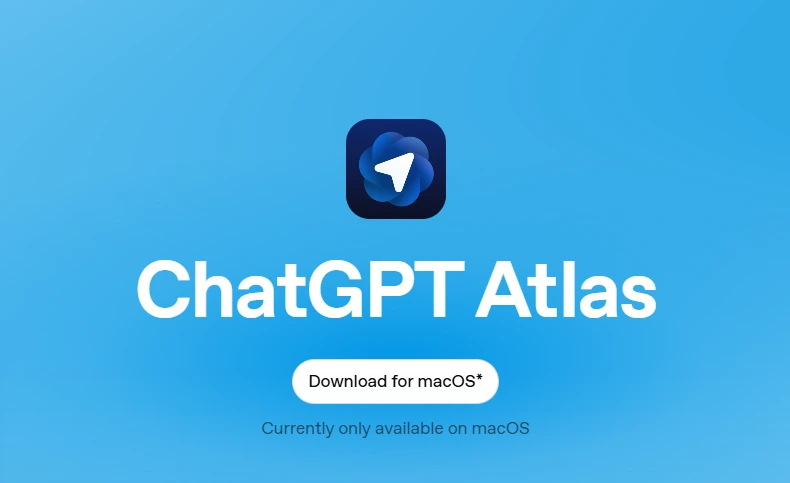On October 21, OpenAI launched ChatGPT Atlas, a browser with ChatGPT integrated directly into every function.
The browser is available now for macOS users worldwide, with Windows, iOS, and Android versions coming later.
Atlas entered a market where Perplexity launched its free Comet browser 19 days earlier, on October 2.
Try Atlas at chatgpt.com/atlas.

Agent Mode Does Tasks For You
Atlas includes agent mode in preview for Plus, Pro, and Business subscribers.
Users can ask ChatGPT to complete multi-step tasks, such as adding recipe ingredients to a grocery cart and placing an order, or researching competitors and writing a summary document.
The agent opens tabs, clicks through websites, and executes tasks while users watch or do other work.
Browser Memories Track Context
Atlas introduces browser memories. ChatGPT stores information from sites you visit and recalls it when needed.
You can ask questions like "summarize the job postings I looked at last week," and ChatGPT pulls from previous browsing sessions.
Users control which sites ChatGPT can see, view all stored memories in settings, and delete them by clearing browsing history. Browser memories are optional and off by default.
Privacy Controls and Risks
OpenAI doesn't train models on browsing data unless users opt in through data controls settings.
Agent mode carries security risks. Hidden instructions on malicious webpages can manipulate the agent to steal data or take unintended actions.
OpenAI added safeguards: the agent can't run code, download files, or install extensions. It pauses on sensitive sites like banking portals. Users can run the agent in logged-out mode to limit access to personal data.
The company states these protections won't stop every attack and recommends monitoring the agent's actions.
The browser marks OpenAI's entry into direct competition with established players like Google Chrome and newcomer Perplexity Comet.









.png)

.svg)





.png)

.png)


